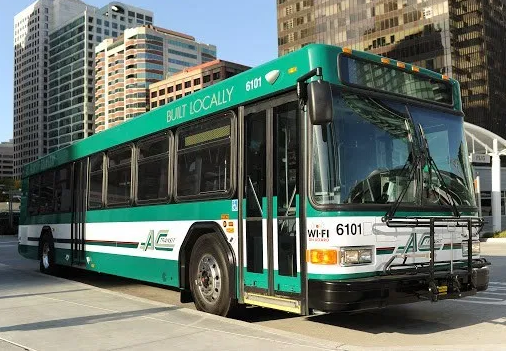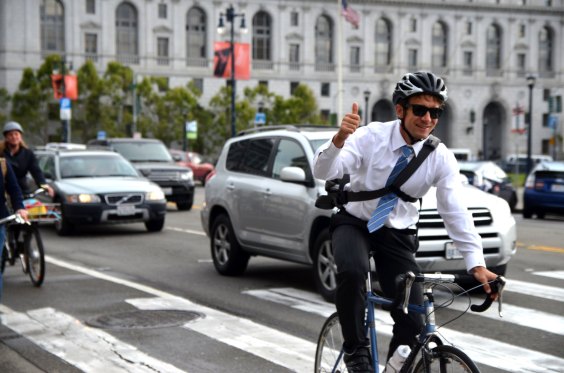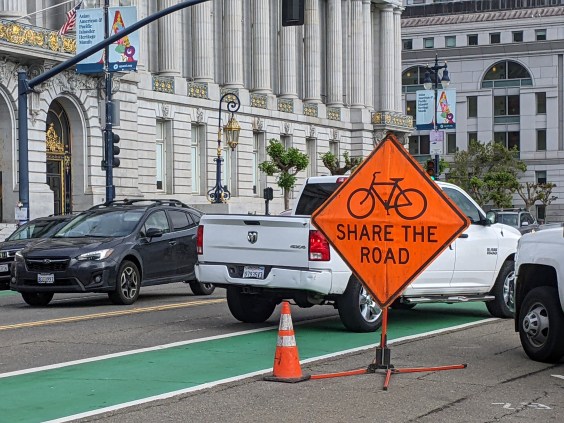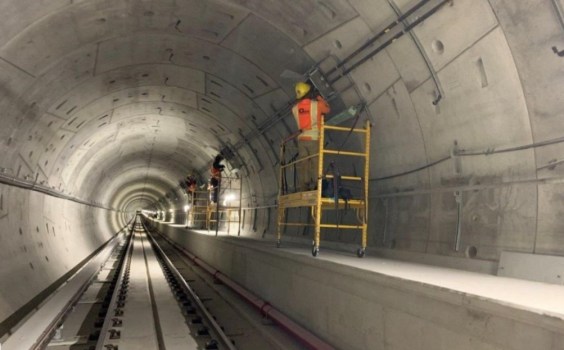The AC Transit Board of Directors this week approved a contract to deploy bus-mounted cameras to automatically capture images of vehicles parked at bus stops or driving in bus-only lanes.
This would make it the first agency to use the technology to enforce parking restrictions at bus stops, although under 2021's A.B. 917, all bus agencies are allowed to do so. San Francisco Muni and AC Transit have both used cameras to enforce bus-only lanes, as allowed by S.B. 1051, passed in 2016. L.A. Metro is about to start conducting a pilot camera enforcement program on certain bus lines, and is exploring adopting an automated system.
Camera enforcement of bus lane violations has proven to be effective at reducing bus delays, as drivers learn that they will be cited for blocking lanes and so avoid doing so. Using similar technology to enforce no-parking zones at bus stops can increase safety for passengers getting on and off buses while also decreasing the amount of time it takes to board. Using automated systems can also reduce the amount of time operators and law enforcement must put into verifying that citations are valid and license plates clearly identified.
AC Transit has deployed cameras to enforce bus-only lane violations on its Tempo bus rapid transit route between Oakland and San Leandro. It uses a manual system that required bus drivers to press a button to flag potential lane violations. While it successfully captures images that are sent to the Alameda County Sheriff's office, the process is time-consuming and only about four percent of the flagged images resulted in citations. The Sheriff's office issued 568 violations in 2022.
Last year, AC Transit had Hayden AI conduct a proof-of-concept test of its automated cameras on two of the Tempo buses, and the technology identified about ten potential violations per bus per day. The automatic license plate reader also successfully read more than 99 percent of the license plates of vehicles blocking the lanes. Because it was a test, no citations were issued, but the results encouraged AC Transit to pursue automated enforcement.
After considering several candidates, AC Transit staff recommended and the board approved a cost-sharing contract with Hayden AI, who will install, operate, and maintain automated forward-facing cameras on 100 AC Transit buses.
While the three agencies - SF Muni, AC Transit, and L.A. Metro - are a little ahead of other California agencies on automated enforcement, other bus agencies were authorized under A.B. 917 to pursue similar enforcement programs, at least until 2027.
At that point, another bill would be required to extend the provisions into the future, but indications are that will probably happen. It took a long time for SF Muni to get legislative permission to test the concept, but the results have proven compelling. Not only have delays been reduced, but San Francisco found that few of those cited received second citations. Its report notes that "Parking Control Officers [viewing the videos] report that occupied illegally parked vehicles are now more likely to leave bus stops and lanes ahead of buses."
In other words, knowing a ticket is likely is enough to encourage drivers to get out of the way.
Other agencies that have deployed similar technology include New York's MTA, Washington D.C., and Philadelphia's SEPTA, which has seen dramatic results as well.





